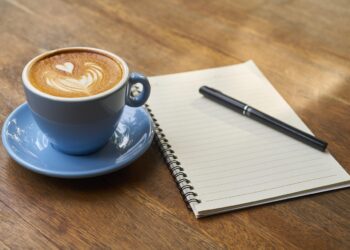The Science of Brewing: Techniques to Elevate Your Coffee Experience
When it comes to brewing the perfect cup of coffee, science plays an essential role. Every step of the coffee-making process affects flavor, aroma, and overall quality. This comprehensive guide explores various brewing techniques, answers common questions, and provides expert tips to elevate your coffee experience. Whether you’re a novice or a seasoned barista, understanding the science behind coffee brewing can greatly enhance your enjoyment and expertise.
Understanding Coffee Beans and Their Impact
The journey to a perfect cup of coffee begins with understanding the beans. Coffee beans vary in flavor based on their origin, variety, and processing method. For instance, African beans are often floral and fruity, while Latin American beans usually have a nutty and chocolatey quality. Choosing the right beans is crucial for achieving the desired flavor profile.
Additionally, the roast level significantly impacts the beans’ chemical structure. Light roasts can highlight acidity and inherent bean flavors, whereas dark roasts might bring out richer, bolder profiles. Experimenting with different types of beans and roasts can help you find the perfect match for your taste preferences.
Optimal Grinding Techniques
The grind size of coffee beans affects the extraction process during brewing. A uniform grind ensures that all particles extract at the same rate, resulting in a well-balanced cup. Here are tips for optimal grinding:
- Burr grinders: These provide a consistent grind size compared to blade grinders. Variations in grind size can lead to uneven extraction, which might make your coffee taste bitter or sour.
- Grind size: This should match your brewing method. For example, espresso requires a fine grind, while French press coffee works best with a coarse grind.
Adjusting grind size is a powerful tool for controlling the strength and flavor of your coffee.
Mastering Brewing Techniques
Different brewing methods can highlight various aspects of coffee flavor. Here’s how common techniques affect the final product:
Pour Over
The pour-over method offers precise control over brewing time and temperature, which are crucial for extracting the nuanced flavors of high-quality beans. This technique involves pouring hot water over coffee grounds in a filter. The water drains through the coffee and filter into a carafe or mug. Use a controlled and steady pour rate to achieve the best results.
French Press
The French press, or press pot, is beloved for its rich and full-bodied flavor. It allows the coffee grounds to steep in boiling water for several minutes, which helps extract more oils and flavors. Ensure you use a coarse grind to avoid a muddy or overly bitter cup.
Espresso
Espresso is a concentrated form of coffee brewed by forcing a small amount of nearly boiling water through finely-ground coffee beans. It’s the base for many popular drinks like lattes and cappuccinos. Achieving the perfect espresso shot involves precision in grind size, water temperature, and pressure.
Water Quality and Temperature
The quality of water is another significant factor in coffee brewing. Hard water can lead to under-extraction, while soft water can cause over-extraction. Ideally, use filtered water to maintain a neutral starting base.
Temperature is equally important. The optimal range for brewing coffee is between 195°F to 205°F (90°C to 96°C). Temperatures outside this range can lead to poor extraction and a disappointing cup.
Maintaining Your Equipment
Keeping your brewing equipment clean is essential for flavor and hygiene. Coffee oils can accumulate and go rancid, affecting the taste of your brew. Regularly clean your grinder, espresso machine, French press, and other equipment according to the manufacturer’s instructions.
Conclusion
Brewing excellent coffee is both an art and a science. By understanding and controlling the many variables involved in the coffee brewing process, you can consistently produce delicious and satisfying results. Experiment with different beans, grinds, and brewing methods to find what works best for you, and don’t forget the importance of water quality and temperature. Happy brewing!
Feel free to ask more questions or share your experiences and tips in the comments below. Each cup of coffee tells a story, enrich your brewing skills to create your ideal narrative.




